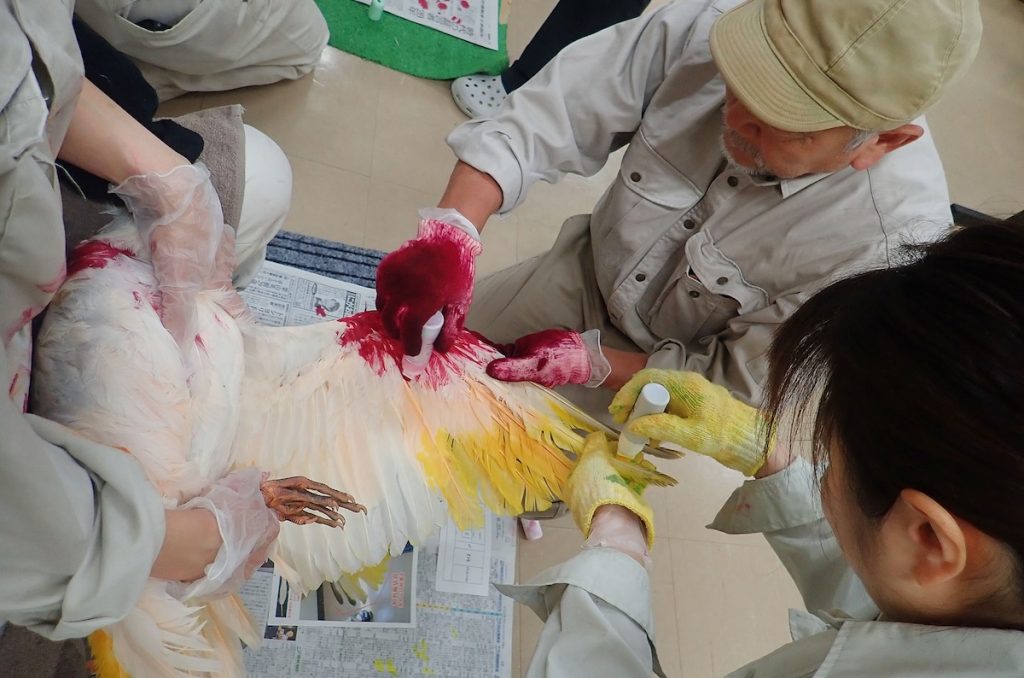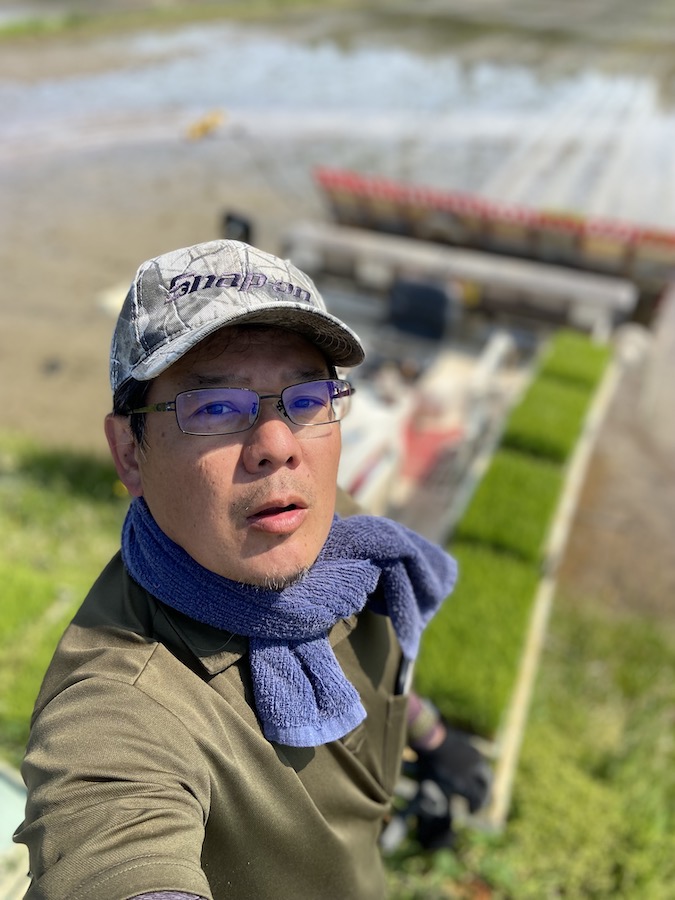
A crested ibis with wings painted red and blue to allow for observation after release into the wild. (© Fumie Oyama)
Read the full story on Japan 2 Earth - [Sado Wildlife in Focus] Extra Colorful Ibis: For a Limited Time Only
For a limited time, the beautiful orange feathers of some Japanese crested ibis are extra colorful – painted in hues of red and blue. Designated a national treasure, these endangered birds have their wings painted before release into the wild. Ibis with painted wings are a special sight on Sado Island. In fact, uninformed tourists often mistakenly believe the bird to be this colorful naturally.
Vivid and Surprising Colors
Of course, red and blue are not the natural colors of the crested ibis. Once extinct in Japan, the bird has been reintroduced to the wild on Sado Island. September 29, 2023, marked the 29th release of birds bred in captivity.

Before their release, the ibis' wings were painted in two places on the inside and outside using animal markers. The birds were also tagged with leg rings, but the colors allow for distinguishing between birds in flight.
Continue reading the full story on Japan 2 Earth to learn more about why crested ibis are painted when released into the wild.
And find more great articles on the environment and the challenges of achieving the SDGs on our new website Japan 2 Earth (J2E), sparking a transition to a sustainable future.
RELATED:
- [Sado Wildlife in Focus] The Crested Ibis in the Tapestry of Autumn's Colors
- The Snow Fairy of Hokkaido is Winter's Sweetest Gift
- Protecting the Vulnerable Little Tern is No Simple Matter
(Read the article in Japanese.)
Author: Fumie Oyama
Click here to read more Sado Wildlife in Focus photo essays by photojournalist Fumie Oyama.

Fumie Oyama is a two-time winner of the Japan Newspaper Publishers & Editors Association Award as a photographer for the Sankei Shimbun. After covering the reintroduction of the crested ibis to the wild for 11 years, Oyama left the company in 2020 to move to Sado Island. There, he continues to photograph the ibis and other wildlife while engaging in farming. He currently promotes the charms of Sado Island as a photojournalist. Follow Fumie Oyama on Instagram.








